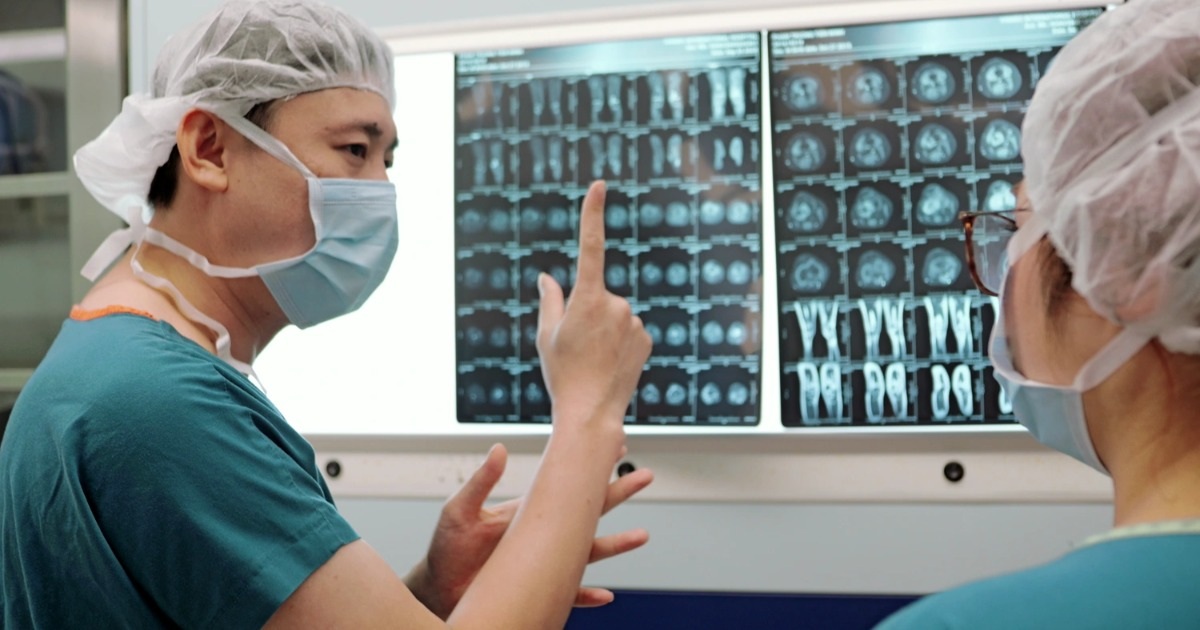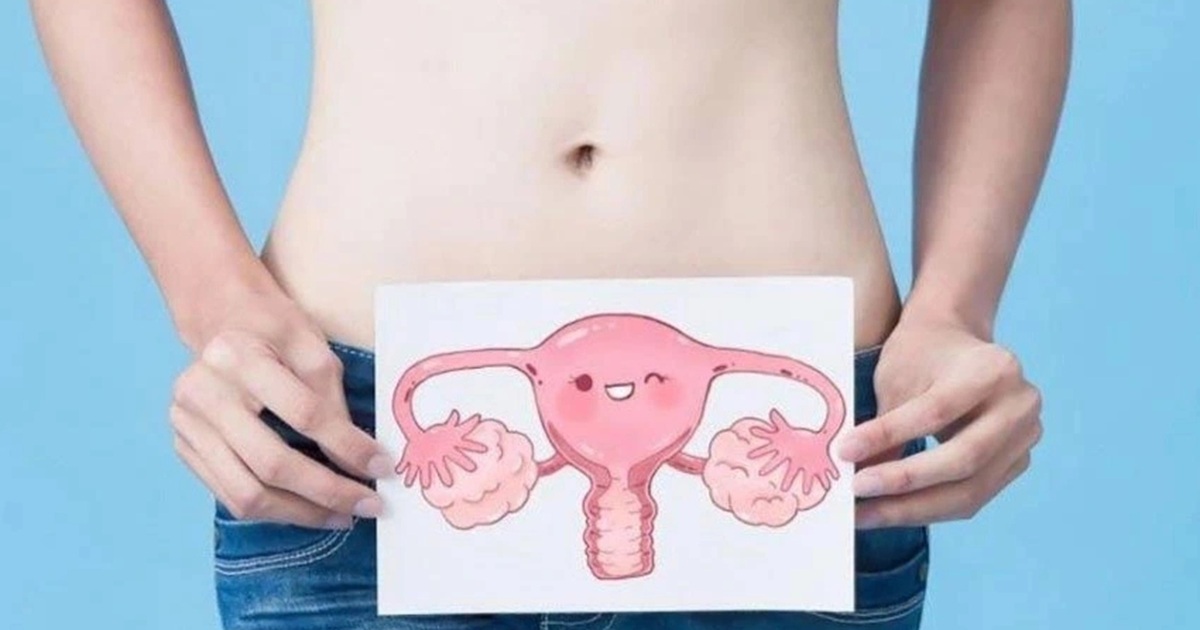They are the doctors who chose the difficult path, dedicated themselves, and persistently built professional standards, from which they trained strong, confident, and compassionate successor generations.
“In medicine, no one can grow alone. Every doctor, whether a leading professor or a young professional, is a link in the shared journey to build a standardized, humane, and advanced healthcare system,” said Prof. Dr. Do Tat Cuong, Chairman of the Clinical Advisory Board, Vinmec Healthcare System.
“The most valuable thing we received from our mentors is not just knowledge, but the continuation of medical ethics. It reminds us that knowledge can become outdated, technology can change, but medical ethics, if properly transmitted, will stay with us for a lifetime,” said Dr. Nguyen Tran Quang Sang, MD, Head of Bone & Soft Tissue Tumor Department, Vinmec Times City.
“As Vinmec’s ‘golden generation’ has been striving to ‘root deeply,’ this internal strength empowers younger generations like us on our journey to conquer the future of value-based medicine,” said Resident Doctor Nguyen The Duy, General Surgery, VinUni University, currently interning at Vinmec Times City.
On the occasion of Vietnamese Teachers’ Day, November 20, the stories of three generations of Vinmec doctors are not only a tribute and honor to those who have dedicated their lives to the profession, but also an affirmation of a belief: when a teacher imparts medical ethics, they open up a future for an entire healthcare system.
From a Mother’s Dying Wish to a Half-Century Journey of “Passing on the Torch”
Prof. Dr. Do Tat Cuong – Chairman of the Clinical Advisory Board, 52 years of experience, nearly 14 years with Vinmec
I came to medicine through a sacred wish from my mother before she passed away. Back then, I was just a schoolboy, too young to fully understand a mother’s worries for the future of her large family.
Prof. Dr. Do Tat Cuong, Chairman of the Clinical Advisory Board, Vinmec Healthcare System (Photo: Vinmec).
But my mother saw in me what I had not yet realized: suitability for the medical profession – the profession of saving lives.
She told my father that among her children, “if one were to become a doctor to care for the family’s health, only Cuong would be the most suitable.” Her words became a dying wish that led me to Hanoi Medical University in late 1967, instead of Polytechnic – where I had once dreamed of going.
And from then on, over 50 years of dedication to the medical field unfolded – a journey full of hardship, sacrifice, but also abundant happiness.
Throughout my career, I was fortunate to accompany historical milestones in Vietnamese medicine: the first kidney transplant in 1992, liver transplant in 2004, and heart transplant in 2010.
Each major surgery could last over ten hours, surgical teams stood continuously, forgetting to eat and drink, but as soon as the patient recovered, all fatigue vanished.
I once fought through sleepless nights to save the life of a worker whose chest was crushed by a generator, worried intensely over patients with weak breathing, and was overjoyed when they were discharged to return to their families. These moments were the greatest happiness, far surpassing any awards or titles I was fortunate to receive.
Scientific research came to me as an inevitable flow. From inventing the TC-08 emergency tracheostomy device, which won first prize at VIFOTEC, to organ transplant works awarded the Ho Chi Minh Prize, I have always believed that research is not about inscribing one’s name on a list, but about helping colleagues practice more easily and safely, so that more patients can be saved in critical moments.
In 2012, I chose to continue my commitment to public healthcare by entering a new environment – Vinmec. On the first day, as I helped Vinmec build the foundations of its key specialized fields, I clearly felt the aspiration to build an international-standard medical model right here in our own country.
From emergency resuscitation, organ transplantation, to human resource training, I have witnessed the gradual maturity of young doctors, who are now mastering many complex techniques – some of which our generation had not even considered before.
More than technical achievements, what makes me most proud is seeing the succeeding generation of doctors grow day by day. I understand that I cannot perform these techniques forever, but knowledge and professional spirit can spread and live longer than a doctor’s lifetime.
Therefore, I dedicate much time to training, mentoring, sharing every experience, every mistake to avoid, every attitude to maintain when facing patients. A single word, a small gesture, can reassure a patient, but sometimes it can also make them anxious – something a doctor must always be careful about.
After more than half a century in the profession, I increasingly realize that medicine is a very beautiful profession – beautiful because of its responsibility, sacrifice, and human compassion.
If given the choice again, I would still choose this path, still be grateful to my mother for seeing my true future, and still continue with Vinmec to train more talented doctors, to continue contributing my small part to public healthcare.
A Doctor’s Growth Cannot Be “Automated”
Dr. Nguyen Tran Quang Sang, MD – Head of Bone & Soft Tissue Tumor Surgery Department, Vinmec Times City, 16 years of experience, 5 years with Vinmec
“When you ask the right question, you’ve already saved the patient halfway.”
“You must understand the patient as a human being, not just a case.”
“A good doctor must first be a kind person.”
These are the principles not found in any textbook, but taught by our mentors – those we always call the “golden generation” of Vietnamese medicine.
Dr. Nguyen Tran Quang Sang, MD, Head of Bone & Soft Tissue Tumor Surgery Department, Vinmec Times City (Photo: Vinmec).
At Vinmec, we – those who follow in our mentors’ footsteps – are given the opportunity to together create miracles and confidently bring Vietnamese medical achievements to major international conferences.
In an era of remarkable technological development, my generation of doctors is supported by AI for diagnosis, robots for surgery, and big data to optimize treatment procedures. But at Vinmec, with a cultural foundation built by previous generations, we profoundly understand that a doctor’s growth cannot be “automated.”
Technology can help us be “faster, more accurate,” but our mentors’ teachings have given us something more important: compassion, responsibility, patience, and humility before medicine.
The philosophy of “learning by doing” (nghề dạy nghề) is therefore not just a tradition at Vinmec but a foundation for our sustainable development.
Technology is strongly supporting the field of bone cancer surgery (Photo: Vinmec).
My specialty is bone cancer surgery – a field where I witness heartbreaking situations that seem impossible in life. Especially when seeing young children endure the pain of limb amputation due to bone cancer.
From the core principle of “building value-based medicine – patient-centered” passed down through generations at Vinmec, we found a solution to protect these children’s legs.
Thanks to 3D printing technology – a collaboration between VinUni engineers and Vinmec doctors – a miracle occurred: replacing the diseased bone with a custom-made 3D printed artificial joint, even capable of “growing with the body” of these children.
16 years in the profession have taught me that with a solid anchor to root ourselves, we can strongly flourish in the future. Therefore, when I came to Vinmec, it was not just to practice my specialty, but also to follow in the footsteps of our elders in building a human-centered academic foundation and passing it on to the younger generation.
Because medicine is not just about diagnosis and treatment; it also requires the ability to listen, empathize, and make the most appropriate choices for patients in their most difficult circumstances.
Today, many doctors of my generation at Vinmec have become lead surgeons, regular speakers at international conferences, and authors of research published in prestigious scientific journals.
But behind these achievements is a long journey, where we once trembled during our first surgery, lost sleep over a decision for a critically ill patient, and were reminded by our mentors: “The most important thing is to understand what the patient needs.”
As the younger generation matures, the circle of professional mentorship continues to expand at Vinmec. We are becoming the succeeding generation: guiding clinical practice, leading internal training programs, conducting simulation teaching, and accompanying colleagues in challenging surgeries.
“My Elders Taught Me Not Just How to Hold a Scalpel, But How to Be a True Doctor”
Resident Doctor Nguyen The Duy, General Surgery, VinUni University
I still vividly remember the first day I stepped into the Vinmec operating room as a true member of the team. It was a surgery for an elderly patient who had an accident. I was assigned to prepare instruments, assist with fluid suction, and maintain the surgical field.
Resident Doctor Nguyen The Duy, General Surgery, VinUni University (Photo: Vinmec).
These seemingly simple actions made my palms sweat. But when the operating lights came on, the suction machine hummed, and the patient’s heart rate was steady on the monitor, I clearly felt one thing: all the knowledge I had learned – anatomy, physiology, sterile procedures – was vividly present before my eyes.
After the surgery, with sweat soaking my back, I left the room feeling as if I had just undergone a true maturation.
At Vinmec, we are given the opportunity to work directly with patients from day one, closely supervised but not stifled, assigned real tasks, real responsibilities, and evaluated by the outcome of the patient’s case.
But the elder generation taught me not just how to hold a scalpel, but how to be a true doctor.
These were hour-long morning briefings where mentors analyzed every detail of scans and lesions, but also shared stories beyond the scope of expertise about patients’ circumstances and families’ anxieties.
“Don’t just treat diseases with protocols; treat diseases with your whole heart” – that’s what I learned from my mentors, because sometimes what a patient needs is a reassuring nod, an explanation slow enough for them to understand, and warm enough for them to feel secure.
These small but repeated actions taught me that kindness is never secondary in medicine; it is part of the expertise.
“Don’t just treat diseases with protocols; treat diseases with your whole heart” is a lesson Dr. Duy always remembers (Photo: Vinmec).
The spirit of compassion at Vinmec is not just on wall slogans but present in every inter-hospital consultation to find more hope for patients, in utilizing weekend time to organize free medical examinations, and even providing financial support for disadvantaged families so they can continue treatment.
These things made me understand that becoming a good doctor is very important, but becoming a kind doctor is even more important. And I am fortunate to grow up in an environment where compassion is vividly passed down through the very values that previous generations are nurturing day and night.
Thanks to this, every day I step into Vinmec, I remind myself: knowledge heals the body, but compassion heals the person. And that is the greatest value of medicine.



